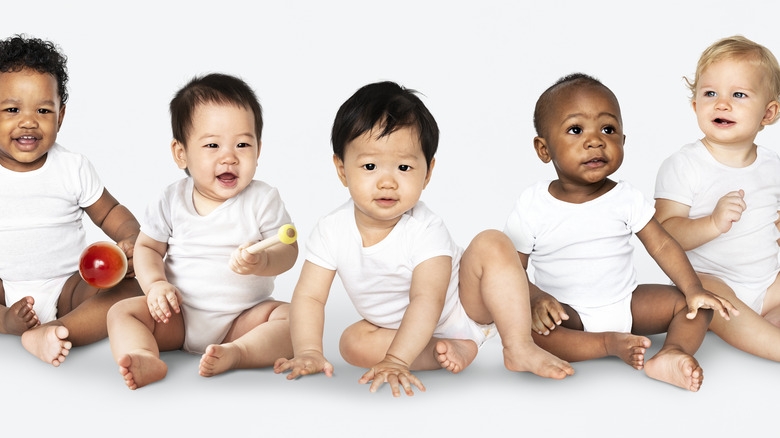Do People Who Are Born In The Fall Really Live Longer?
Astrologers tell us the month we're born can greatly influence the outcome of our life. But could the season we're born in impact how long we live? According to a 2001 study from the Max Planck Institute in Germany published in the Proceedings of the National Academy of Sciences (PNAS) and a 2011 study from the University of Chicago published in the Journal of Aging Research, a growing body of evidence suggests that's the case.
The Planck study found those born in Austria and Denmark in the fall lived slightly longer than those born in other times of the year. The study then considered the Southern Hemisphere — Australia — where the seasons are switched. The results found the opposite was true: Babies born in the Southern Hemisphere's autumn months with spring-like conditions lived somewhat shorter lives than those born in spring — or fall in that part of the world.
Meanwhile, the 2012 University of Chicago study examined the lifespans of 1,500 people born in the autumn in the late 19th century via their social security records and found around 40% more of them lived to 100 compared to their siblings and spouses born at other times of the year. Crucially, the inclusion of spouses in the Chicago study controlled for other lifestyle factors affecting lifespan such as poverty.
The mother's nutrition likely plays a part
The results from both the Max Planck and University of Chicago studies might relate less to the season a child is born and more to the quality of the food available to a mother when she's pregnant. While pregnant in late summer and early fall (reverse that in the south), there's an abundance of fresh fruit and vegetables for an expectant mother to eat. Seasonality could also affect the likelihood a mother might live through an infection or other health complication while pregnant, as well as the chances the child experiences something similar after their born, affecting their health and well-being later in life.
But if you're an autumn baby or planning the best time to be pregnant, University of Illinois at Chicago public health professor S. Jay Olshansky told The New York Times, "You have to remember, this is for populations, not for individuals. For an individual, the month you were born is going to be largely irrelevant. What really will matter is the lifestyle you lead and the genetics you inherited." Still, Leonid A. Garilov of the National Opinion Research Center at the University of Chicago — and first author of the Journal of Aging Research study — seemed to disagree. "The findings of this study support the idea of early-life programming of human aging and longevity," he told Fox News.
Birth order may affect longevity, too
The month a child is born is not the only factor that appears to affect lifespan. The University of Chicago also found firstborn children of both genders were more likely to reach their 100th birthday. Potential explanations include better overall health of younger parents as well as the attention paid to the newborn compared to later-born children, improving social, emotional, and mental development, per Scientific American.
According to first author Leonid A. Gavrilov, the firstborn findings aren't new. "There are a lot of observations that first-born children have an advantage both in health status and even in educational achievement," he said (via The New York Times). But from modern medicine to the availability of nutritious food year-round in some areas, it remains to be seen how birth month and birth order will affect the lifespan of future children.


